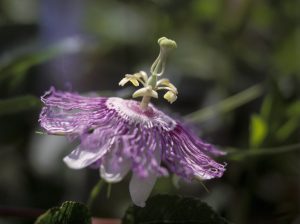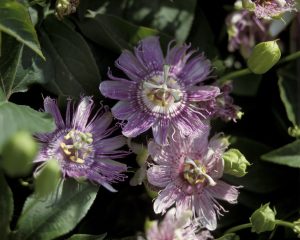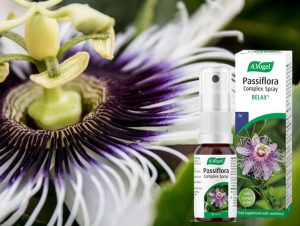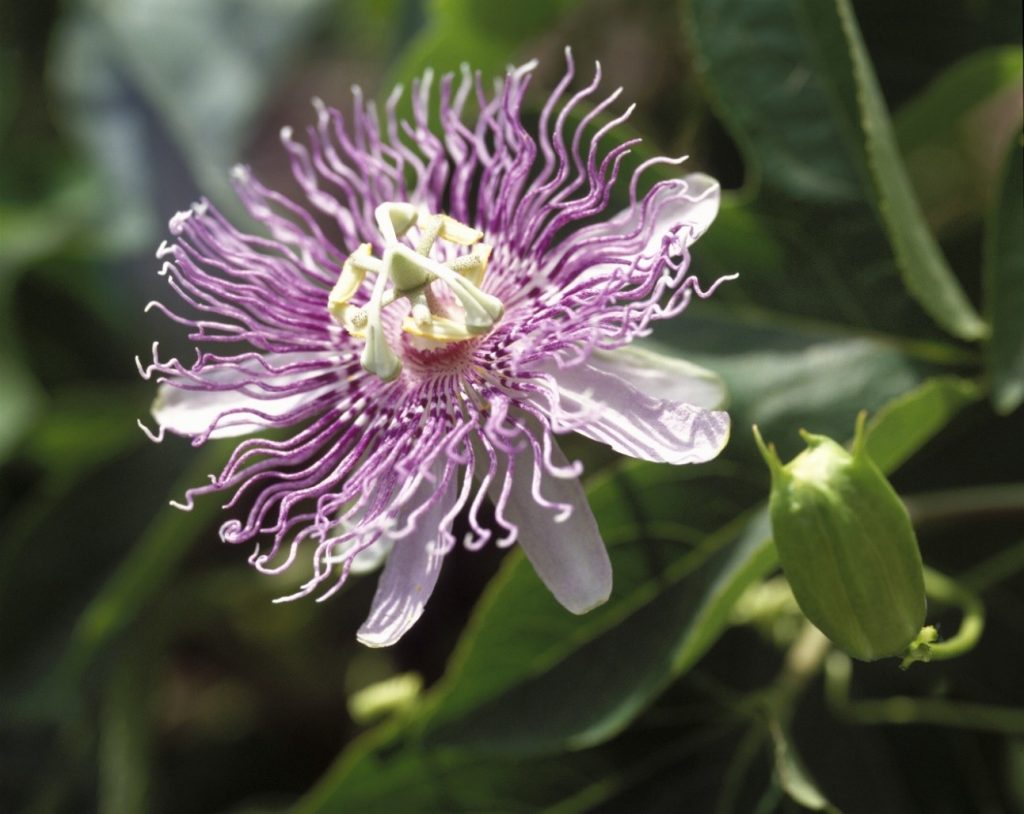 Marianna Kilburn, Stress Expert
Marianna Kilburn, Stress Expert
Passiflora is a wonderful remedy for calming the nervous system and reducing symptoms of anxiety. It calms the nerves, the body and the mind. It relieves mental irritation and spiralling thoughts, without being commonly associated with any side effects.

 Siobhan Carroll, Medical Herbalist (@NerdyNaturopath)
Siobhan Carroll, Medical Herbalist (@NerdyNaturopath)
Passiflora’s full name in Latin is Passiflora incarnata. In English, it is commonly called Passionflower, but it has some other gorgeous names including maypops, wild passion vine, or wild apricot. The flowers and vines are used in herbal medicine for its relaxing nervine properties and as a mild sedative. It is indicated for conditions with restless agitation, being anodyne and anxiolytic.
Passiflora incarnata contains unique alkaloids, flavonoids and indole alkaloids, which work together to help relax both mind and muscles. The pharmacological actions of these phytochemicals are well studied and attribute to the antispasmodic, anti-inflammatory and calming effects.
Passiflora is most well-known for its relaxing nervine properties and as a mild sedative. It is also antispasmodic, which helps contribute to its calming effect. It is indicated for conditions with restless agitation, exhaustion with muscular twitching or a tendency towards spasms. It is anti-inflammatory too, anodyne and anxiolytic, and acts as a cerebral vasorelaxant. Basically, it relaxes the body and the brain, reduces inflammation and pain, and helps sleep: an excellent remedy for today’s world!
Anxiety
Passiflora is a wonderful remedy for calming the nervous system and reducing symptoms of anxiety. It calms the nerves, the body and the mind. It relieves cerebral irritation and spiralling thoughts. Even though it is also used to aid sleep, as we’ll see below, it does not cause any drowsiness and is best taken throughout the day.
It is a cooling herb, so can be helpful for people who are habitually hot or who get hot flushes or red cheeks when they are stressed, angry or anxious. It is particularly indicated for people who tend towards anger, irritability, intolerance.
It helps to improve concentration and ease exam nerves, so definitely great to take while studying and doing exams, or before interviews or a big work presentation.
Stress
Passiflora is my personal favourite herb for dealing with stress, even though it is a calming nervine, rather than an adaptogen. Adaptogens, like Siberian Ginseng, are herbs that help the body cope better with stress. Passiflora doesn’t have the same adaptogenic effect as herbs like Rhodiola or Ashwagandha. Instead, it helps ease stress by reducing the internal stress we take on board by overthinking and worrying about our stressors.
It is often what is needed for those people who keep going until they burn out. Passiflora helps them rest and relax and let go of the stress, rather than pushing through. Adaptogens can be great to help someone get through a stressful event like exams or a house move; but I always give them alongside calming nervines like Passiflora and Avena sativa.
For more long-term, chronic stress (like the stress of living through a pandemic for example!), calming nervines like Passiflora are more appropriate and effective.
Sleep
Passiflora is a herb I almost always put in a sleep formula for insomnia. It is used by many herbalists to aid sleep, and Alfred Vogel, in his book The Nature Doctor, recommended Passiflora to be taken in addition to Valerian and Hops for the treatment of insomnia, if an even stronger effect was needed.
It is particularly helpful for people who take a long time to get asleep, but once they are asleep, they stay asleep. A specific indication I learnt from a herbalist lecturer of mine is that Passiflora is great for anyone who sleeps spread out in a star shape. This may be due to its cooling nature, as people who spread out in their sleep often have a hot constitution.

 Ali Cullen, Nutritional Practitioner (avogel.co.uk)
Ali Cullen, Nutritional Practitioner (avogel.co.uk)
I find this remedy very helpful in my clinic, where it has been lovingly described as ‘A hug in a bottle’. It can improve concentration and ease exam nerves, so it’s great for studying and doing exams, or before interviews or a big work presentation. I also use it a great deal for perimenopausal and menopausal clients, to ease anxiety without causing sleepiness. Women often find they have a better sleep at night after feeling less wound-up during the day. I love the fact it’s not addictive and there are no problems with taking it long-term if needed.
Feeling stressed? KEEP CALM and relax… with A. Vogel’s Passiflora Complex RELAX Spray
 According to the second Annual Burnout Report published by Mental Health UK, as many as 91% of us experienced high pressure or stress at some point during 2024.
According to the second Annual Burnout Report published by Mental Health UK, as many as 91% of us experienced high pressure or stress at some point during 2024.
Stress affects our bodies in so many ways and, if left untreated, can impact our mood, emotions and physical wellbeing.
A.Vogel’s Passiflora Complex RELAX Spray is a gentle, relaxing blend of herbs for those needing to relax. It provides Passiflora (Passion Flower), Lemon Balm and zinc, and is flavoured with natural vanilla and star anise.
Why this blend of ingredients? Passiflora and Lemon Balm are included to support relaxation, whilst zinc is an essential mineral that contributes to normal cognitive function.
The convenient spray format means it fits easily into your pocket or bag – perfect for on-the-go support and also those who aren’t so keen on tablets. Simply spray into your mouth. It is also suitable for young people aged 12 and above, making it ideal for anxious teens and children of high school age.
Vegan, sugar-free, alcohol-free and non-addictive, A.Vogel’s Passiflora Complex RELAX Spray costs £13.99 for 20ml and is available from independent health stores nationwide and online at www.avogel.co.uk / www.avogel.ie.


